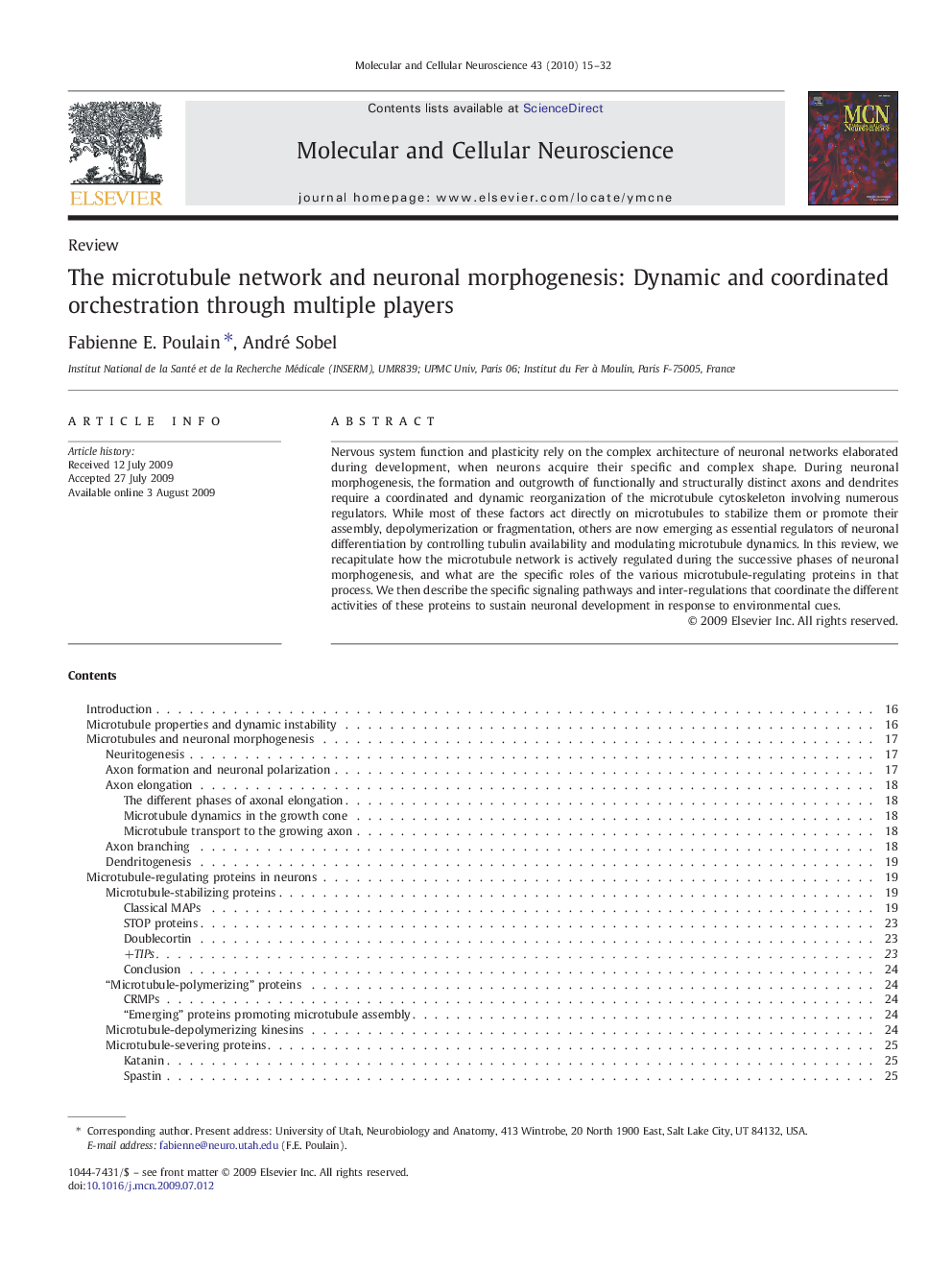| Article ID | Journal | Published Year | Pages | File Type |
|---|---|---|---|---|
| 2198896 | Molecular and Cellular Neuroscience | 2010 | 18 Pages |
Nervous system function and plasticity rely on the complex architecture of neuronal networks elaborated during development, when neurons acquire their specific and complex shape. During neuronal morphogenesis, the formation and outgrowth of functionally and structurally distinct axons and dendrites require a coordinated and dynamic reorganization of the microtubule cytoskeleton involving numerous regulators. While most of these factors act directly on microtubules to stabilize them or promote their assembly, depolymerization or fragmentation, others are now emerging as essential regulators of neuronal differentiation by controlling tubulin availability and modulating microtubule dynamics. In this review, we recapitulate how the microtubule network is actively regulated during the successive phases of neuronal morphogenesis, and what are the specific roles of the various microtubule-regulating proteins in that process. We then describe the specific signaling pathways and inter-regulations that coordinate the different activities of these proteins to sustain neuronal development in response to environmental cues.
